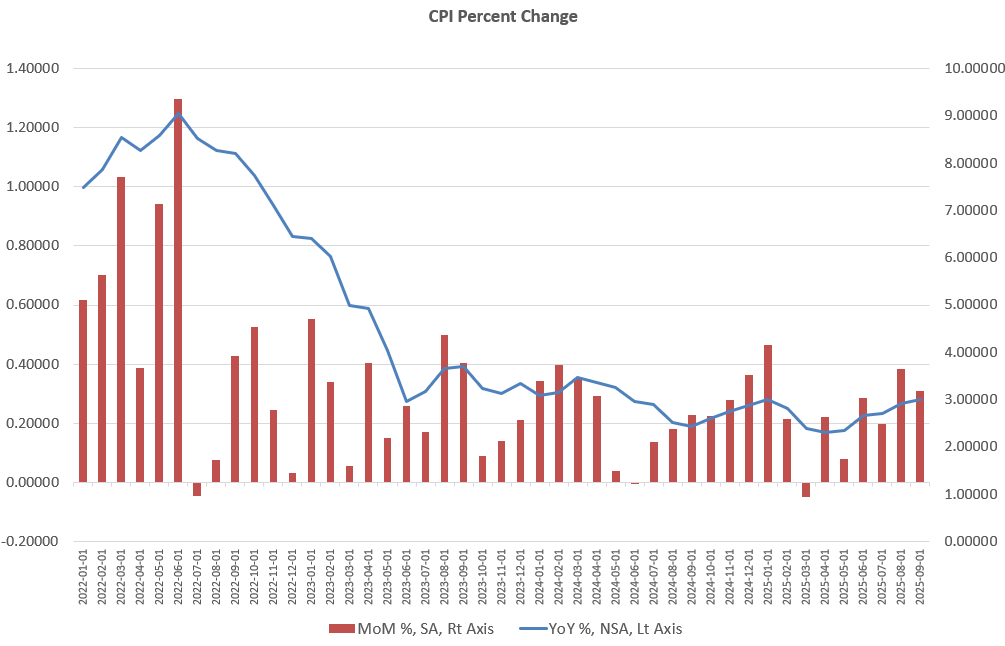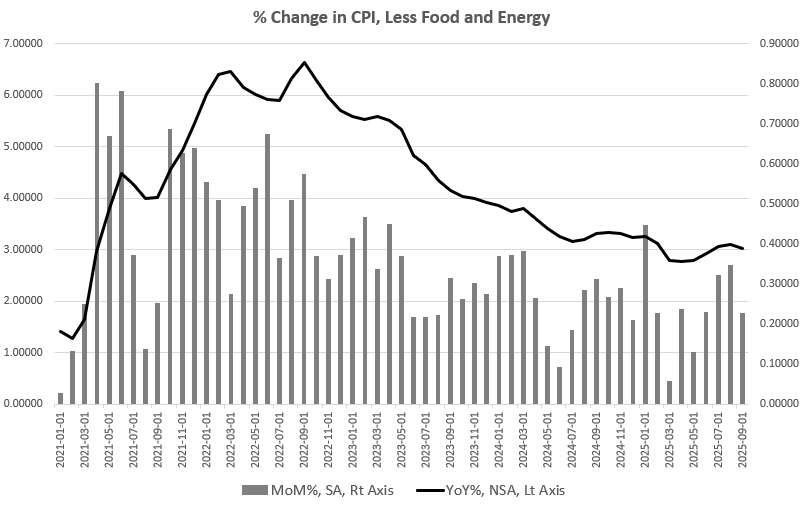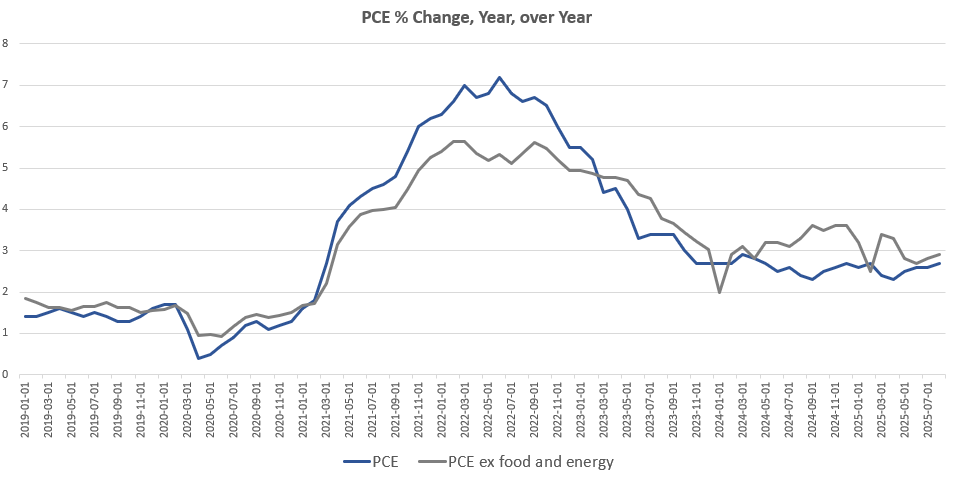The Fed’s Federal Open Market Committee has cut the target interest rate five times since September of 2024, and, not surprisingly, CPI inflation has increased every month for the past six months.
According to the September consumer price index report, released last week by the Bureau of Labor Statistics, price inflation rose 0.3 percent in September, month over month.
Meanwhile, the year-over-year increase was 3.0 percent, the largest annual increase in 17 months. The year-over-year growth rate in the CPI has now increased for six months in a row.

This suggests there is significant upward pressure on prices.
This is echoed by the so-called “core” CPI which excludes volatile food and energy prices. Core CPI was up in September, month over month, by 0.22 percent. Core CPI growth has not gone down, month over month, in 64 months.
Measured year-over year, September’s core CPI was up by 3.0 percent, and has been above three percent for three months. Indeed, core CPI year-over-year inflation has only dipped below 2 percent during three months of the past 53 months.

Although the Federal Reserve claims to have a target CPI inflation rate of 2 percent, one could be forgiven for thinking that the Fed isn’t actually trying very hard to hit the target rate.
After all, the Fed’s preferred measure of inflation, the personal consumption expenditure measure, also shows that price inflation hasn’t fallen to two percent or below two percent since February of 2021. The August PCE measure (the most recent available number) was up 2.7 percent, year over year, while the core PCE increase for August was 2.9 percent.

The Fed, of course, has had to provide excuses for why it is so bad at getting price inflation back down to its target. After all, aren’t we told that the Fed is filled with the world’s best analysts and economists? The explanation given nowadays is that tariffs are pushing prices up, and so it’s really the fault of the administration. This may be a savvy move politically, but it’s bad economics. Price inflation is caused by monetary inflation, and not by tariffs, “Putin’s price hike,” or by logistical problems. The Fed likes to blame price inflation on everything but the real cause, which is monetary inflation—an increasing money supply. Only an increasing money supply can create general price increases in the economy in which prices for rents, food, energy, services, etc rise in aggregate. It is only when the money supply rises that prices generally rise across the whole economy.
Yet, even by the federal government’s own CPI measure—which tends to downplay the real impact of price inflation—we see overall price increases. Yes, some prices fall here and there in the CPI report, as we now see in used cars and energy. But the index is up overall. This is possible because monetary inflation means that when prices rise in some areas, there is still extra money sloshing around that is available to keep bidding up prices across the board.
Without a rising money supply, on the other hand, prices could not rise across the economy in general because rising prices in some areas would reduce the money available for spending in other areas. That is, price deflation in some areas would fully offset price inflation in other areas, and we would not see any significant general price inflation.
If price increases were merely the result of tariffs, we would indeed see price increased in goods that rely on imported parts, or which are imported as finished goods. However, if the money supply were stable, increased spending on imports would lead to less spending—and falling prices— in other areas.
That’s not happening. Rather, we continue to see significant increases in prices across the economy, in general, so we can’t blame this on tariffs, or oil prices, or any foreign war.


